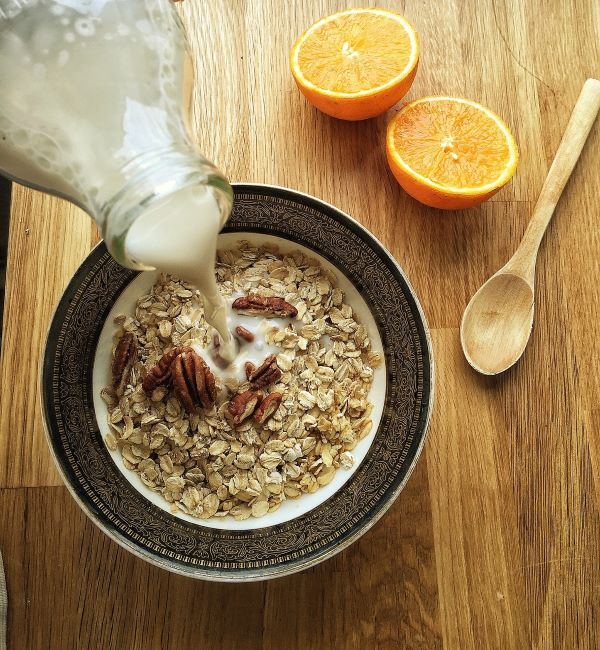If you’ve ever been told to “eat more fiber,” you might have wondered, “What’s the big deal?” Well, here’s the truth: fiber is like the unsung hero of gut health. It doesn’t just keep things moving along (yes, I’m talking about bowel movements) but also feeds your gut microbiome, supports digestion, and plays a role in overall well-being.
Let’s break it down, shall we? We’ll explore why fiber matters, the different types, and how you can easily add more to your diet without feeling overwhelmed.
Also, read: Now Know How to Test Your Gut Health at Home
Why Is Fiber So Important for Gut Health?
Fiber is a type of carbohydrate that your body can’t fully digest. While this might sound like a bad thing, it’s actually fantastic for your gut. Here’s why:
- Feeds Your Gut Bacteria
Fiber is the primary food source for the good bacteria in your gut. When they feast on fiber, they produce short-chain fatty acids (SCFAs), which help reduce inflammation and strengthen your gut lining. - Promotes Regular Bowel Movements
Ever feel “stuck”? Fiber adds bulk to your stool, making it easier to pass. It’s like nature’s broom, sweeping your digestive system clean. - Supports Weight Management
High-fiber foods are often low in calories and keep you feeling full longer, which can help with portion control. - Reduces Risk of Chronic Diseases
Research suggests that diets high in fiber can lower the risk of heart disease, type 2 diabetes, and even certain cancers. (Source)
Types of Fiber: Soluble vs. Insoluble
Not all fiber is the same, and knowing the difference can help you make better dietary choices.
1. Soluble Fiber
- Dissolves in water to form a gel-like substance.
- Helps lower cholesterol and regulate blood sugar.
- Sources: Oats, beans, lentils, apples, and citrus fruits.
2. Insoluble Fiber
- Doesn’t dissolve in water but adds bulk to your stool.
- Aids in preventing constipation.
- Sources: Whole grains, nuts, seeds, and the skins of fruits and vegetables. (Source)
How Much Fiber Do You Need?
You might wonder, “Am I eating enough fiber?” According to dietary guidelines:
- Women need around 25 grams of fiber per day.
- Men need about 38 grams daily.
To put this into perspective, a cup of cooked lentils provides around 15 grams of fiber. Not too bad, right?
How to Incorporate More Fiber Into Your Diet
Adding fiber doesn’t have to mean overhauling your entire menu. Start small and build from there:
- Start Your Day With Oats
Oatmeal isn’t just cozy—it’s packed with soluble fiber. Top it with some berries and nuts for an extra boost. - Snack Smart
Swap chips for air-popped popcorn or raw veggies with hummus. - Choose Whole Grains
Think brown rice, whole-wheat bread, and quinoa instead of their refined counterparts. - Embrace Legumes
Lentils, chickpeas, and black beans are fiber powerhouses. Toss them into soups, salads, or stews. - Don’t Peel Your Produce
The skin of fruits and vegetables is often rich in fiber, so keep it on when you can.
FAQs About Fiber and Gut Health
Q: Can eating too much fiber be harmful?
A: Yes, especially if you increase your intake too quickly. It can lead to bloating, gas, or cramping. Always introduce fiber gradually and drink plenty of water.
Q: Are fiber supplements as good as natural sources?
A: While supplements can help, whole foods provide additional nutrients that you won’t get from a pill or powder.
Q: What’s the best time to eat fiber?
A: Any time! Just spread your intake throughout the day for better digestion and absorption.
Q: Does fiber help with IBS (Irritable Bowel Syndrome)?
A: It depends on the type of IBS. Soluble fiber is often recommended, but insoluble fiber can aggravate symptoms for some people.
The Science Behind Fiber and Gut Health
You might be wondering, “Is there actual science to back this up?” Absolutely!
- A study published in Cell Host & Microbe found that diets rich in fiber increase microbial diversity, which is crucial for a healthy gut.
- Another research paper in The Lancet showed that high-fiber diets reduce the risk of mortality from chronic diseases.
- The American Journal of Clinical Nutrition highlights how SCFAs produced during fiber fermentation play a role in reducing inflammation and maintaining gut integrity.
My Personal Take
I’ll admit it—there was a time when I barely thought about fiber. It wasn’t until I started feeling sluggish and dealing with bloating that I realized how much my diet lacked this crucial nutrient. Adding a morning smoothie with spinach, chia seeds, and a handful of berries made a noticeable difference.
Common Fiber Myths
Let’s clear up some misconceptions:
- Myth 1: Fiber is only for digestion.
While digestion is a big part of it, fiber also supports heart health, weight management, and even mental health (gut-brain connection, anyone?). - Myth 2: All fibers are created equal.
Soluble and insoluble fibers serve different purposes, so aim for a balance. - Myth 3: Fiber supplements are just as good.
Whole foods provide a package of nutrients that supplements can’t replicate.
Final Thoughts
Fiber isn’t just about keeping your gut happy—it’s about supporting your overall health. By including more high-fiber foods in your diet, you’re investing in your well-being.
So, what’s your next move? Whether it’s trying a new recipe, swapping white bread for whole-grain, or simply adding an apple to your lunch, small changes add up. Your gut (and body) will thank you!





